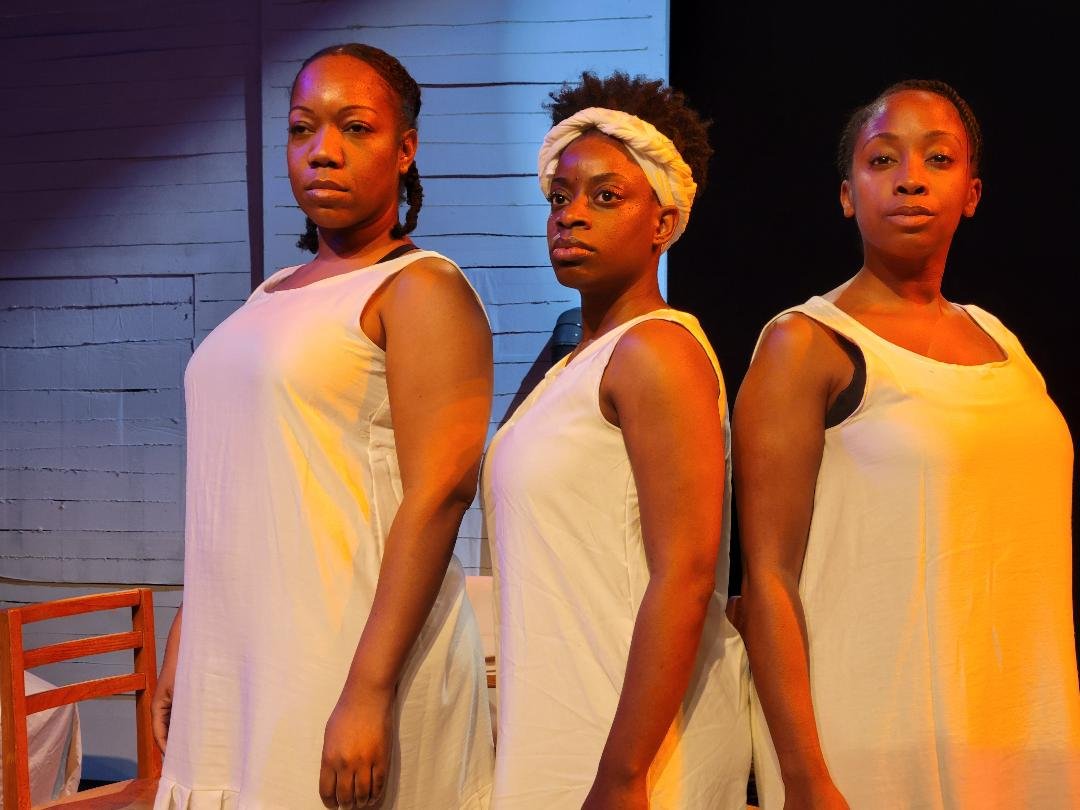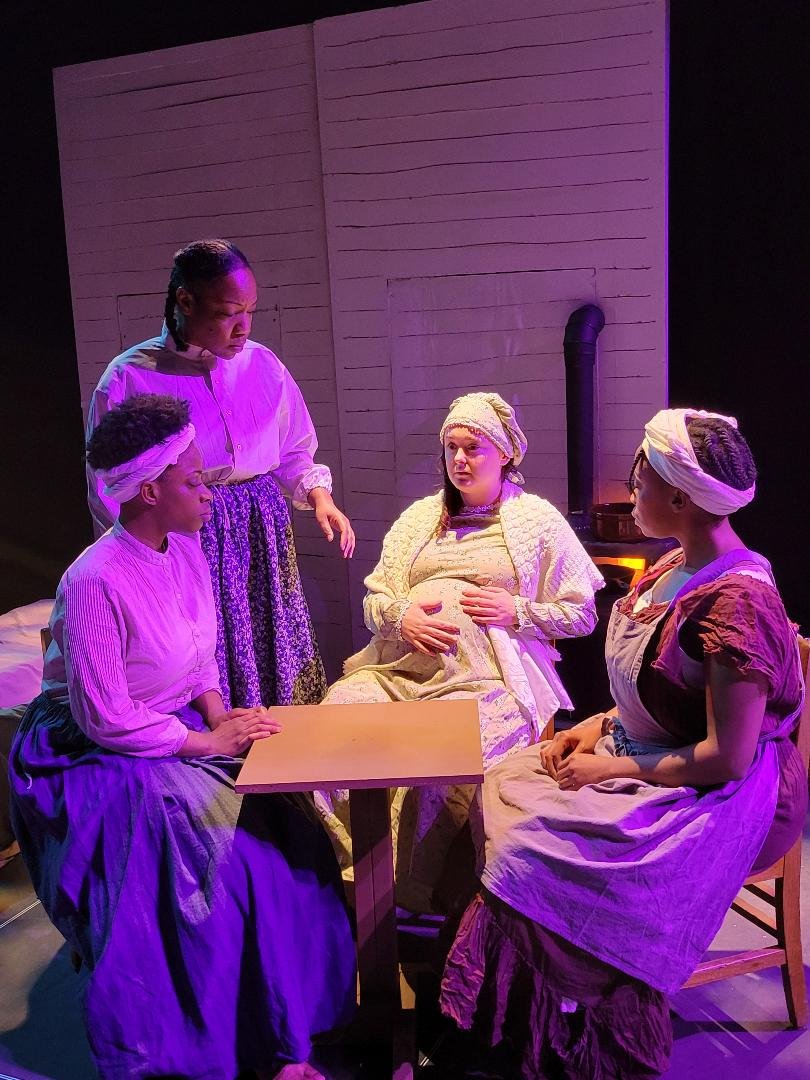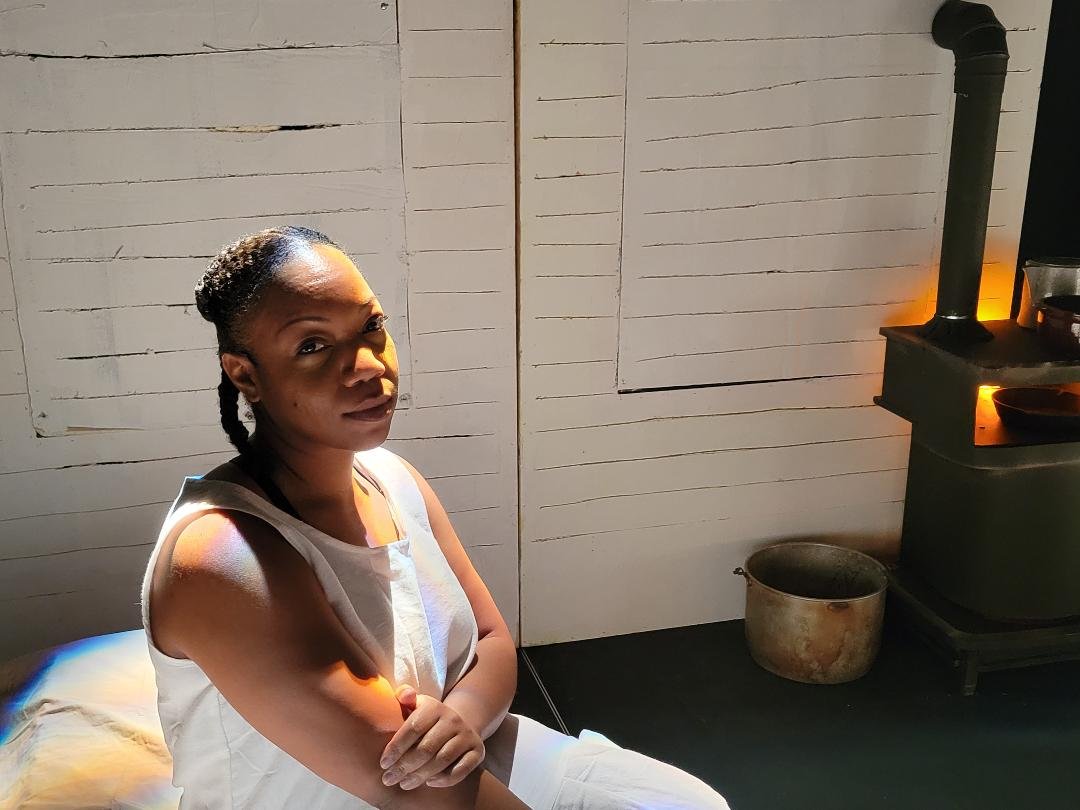Do No Harm @ Soul Rep Theatre Company/The Elevator Project
—Jill Sweeney
“Was Sims a savior or a sadist? It depends, I suppose, on the color of the women you ask.” Harriet A. Washington, Medical Apartheid: The Dark History of Medical Experimentation on Black Americans from Colonial Times to the Present
J. Marion Sims was, until quite recently, uncritically called “the father of modern gynecology.” A doctor who practiced in the South in the 1800s, Sims developed revolutionary technology and techniques in the gynecological field, an area of medicine which until that point most doctors simply refused to engage with. His work eventually led to a successful cure for the vesicovaginal fistula in 1849, a painful and embarrassing condition that until that point was considered incurable. Sims would go on to found the first hospital exclusively for women in the United States, and to tour Europe, treating royalty with his surgical techniques. A statue was erected in New York City in his honor, which stood first in Bryant Park and then in Central Park, until 2018.
This is a bloodless recitation of facts but make no mistake: there’s no shortage of blood surrounding Sims’ medical practices, many of which were developed by operating, without anesthesia, on enslaved women without their consent. (White women who later benefited from the surgery were anesthetized, though even so, few could bear the pain.) Anyika McMillan-Herod’s Do No Harm rightly re-centers the telling of these events on the women who suffered at Sims’ hands, exploring the beauty and the humanity of these women in the face of inhumanity.
McMillan-Herod’s play, at the Wyly Theatre, is presented by Soul Rep Theatre Company as part of the Elevator Project, a joint venture of AT&T Performing Arts Center (ATTPAC) and the City of Dallas’ Office of Cultural Affairs.
Though several enslaved Black women were experimented on by Sims in the 1840s, he made note of only three of their names—Lucy, Betsey, and Anarcha. These, then, are the women McMillan-Herod’s play conjures up and brings forth (fleshed-out imaginings of real but undocumented women, grounded in the facts of their time), using flashbacks to show how they came to Sims’ farm, and what the lives they were forced to live—and leave behind—must have been like.
Lucy (Whitney LaTrice Coulter) and Betsey (Johanna Nchekwube) do most of the talking in the play’s first scenes, bickering with the warmth of family members, mostly on the subject of faith. Betsey is fervent in her faith and in God’s plan, while Lucy, worn down by pain and the separation from her husband and child, takes a more jaded view of their situation. Also present is mute Anarcha (Brittney Bluitt). She has been Dr. Sims’ patient the longest, but manages to retain not only her dignity but her joy.
Under the thoughtful, unflinching direction of Guinea Bennett-Price (co-artistic Director of Soul Rep; McMillan-Herod is co-founder and Executive Director of the company), all three actresses imbue the characters with a weary but sincere grace, especially in their dealings with Tabitha (Claire Carson), a pregnant white woman employed by Sims in part to care for the enslaved women. Tabitha is simultaneously a tool of white supremacy and its victim. By the play’s end, each character has been given space to rail against the horrors of the abuse they’ve suffered (and those they will continue to suffer once returned to their masters). And each woman speaks in her own way, and in her unique voice.
Coulter’s Lucy is a firebrand, refusing to submit to the injustice she and the other women are experiencing, but worn down by multiple surgeries and the absence of her family. Coulter’s physicality after Lucy’s 20th surgery, moving from position to position to try and find relief, is agonizing to watch, almost a grotesque parody of a woman in labor. Equally agonizing is a scene flashing back to Lucy’s arrival at the Sims farm, where she’s forced to leave her breastfeeding daughter behind.
Bluitt speaks volumes without saying a word as Anarcha, with every emotion transparent on her face. She moves seamlessly from small comic moments to those of unbearable pain, especially late in the play when the extent of Sims’ cruelty nearly breaks all three women. Nchekwube beautifully arcs Betsey’s movement from faith, to doubt, to renewed faith, and captures Betsey’s kindness to the oblivious, entitled Tabitha, played by Carson with a perfect combination of obliviousness and venom.
Do No Harm has followed a winding path to the stage. Commissioned by SMU Theology Professor Dr. Evelyn Parker and The Association of Practical Theology as a vehicle for discussing American medical ethics, the show was set to premiere in Houston in 2020. Cue the pandemic. Fortunately, Soul Rep was able to create a filmed version of the play which was presented in 2021 as part of the theater’s 25th anniversary season. Now Do No Harm finally gets its world premiere, as part of the ATTPAC’s 2021/22 season of the Elevator Project.
There are simple reasons Do No Harm is a triumph. It is a striking, relevant indictment of the continuing failures in the medical community to treat or even acknowledge the pain of Black women, and certainly topic of concern in Texas, a state with some of the most abysmal maternal mortality rates for Black women in the country. But beyond that, the play gives voice to women whose voices were taken from them, freeing them to speak not only of their pain, but of their love, their joy, their faith.
Soul Rep Theatre Company’s production is a celebration of Black women’s indomitable spirit, and a painful meditation on faith under the worst circumstances imaginable. Do No Harm may have had a long journey to get here, but the North Texas arts community is so much the richer for its presence.
WHEN: Through March 19
WHERE: Wyly Theatre (Wyly Studio)



